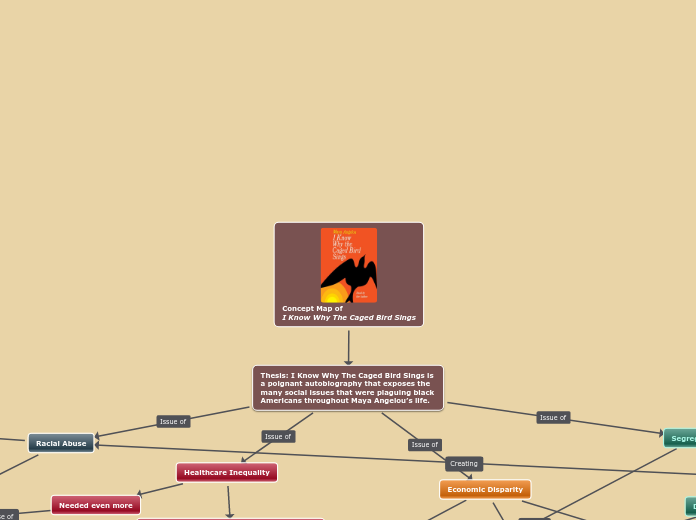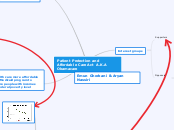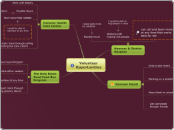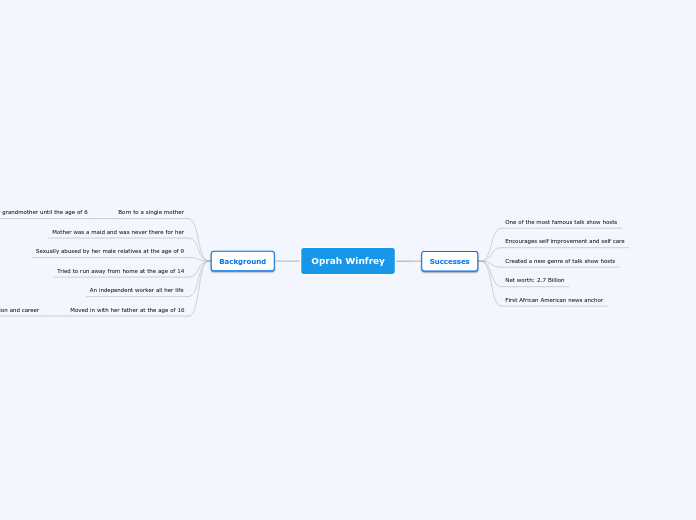Maya's autobiography is an example of how Post-Colonial America had a several social justice issues that greatly affected African Americans, including Maya Angelou.
Segregation is one of the most well known social issues that America had in the past. It left black communities separated and dehumanized.
Healthcare is a life altering social issue that is shown to dis-proportionally affect Maya and her black community.
Maya is an example of African-Americans who have to struggle to get the proper healthcare that is needed.
Maya exposes how this Post-Colonial America is racially abusive to coloured communities.
Concept Map of
I Know Why The Caged Bird Sings
Thesis: I Know Why The Caged Bird Sings is a poignant autobiography that exposes the many social issues that were plaguing black Americans throughout Maya Angelou’s life.
Segregation
Division between white Americans and African Americans.
Division between.
“..most Black children didn’t really, absolutely know what whites looked like.” (Angelou 25)
“A light shade had been pulled down between the Black community and all things white” (Angelou 49).
Creating sense of superiority over
back people.
With segregation came a sense of dehumanization. Black people were observed as "other" and not truly part of America.
Economic Disparity
Rich and prospering white communities
“white folks’ cars and white glistening houses and their children and their women. But above all, their wealth that allowed them to waste was the most enviable. They had so many clothes they were able to give perfectly good dresses, worn just under the arms, to the sewing class at our school for the larger girls to practice on.” (Angelou 49)
White communities and how they are so vastly different. They are wealthy enough to the point of allows them to waste their money.
Poor and struggling black communities
“a Negro couldn’t buy vanilla ice cream” (Angelou 49)
That these black communities are
already struggling to get the basic
essentials, like food and clothing.
Healthcare Inequality
Needed even more
Many black communities had little access to
proper doctor and dental offices.
Very few medical/dental offices
allowed black people.
“Annie, everybody has a policy. In this world you have to have a policy. Now, my policy is I don’t treat colored people.” (Angelou 188)
They are forced to travel very
far distances for black doctors.
their economic state prevented
them from being able to afford
professional help.
Racial Abuse
Physical Abuse
Ku Klux Klan constantly looking
for any reason to kill black people.
"It was fortunate that the boys didn’t ride into our yard that evening and insist that Momma open the Store. They
would have surely found Uncle Willie and just as surely
lynched him." (Angelou, 18/19)
Common occurrences of lynching
and black killings.
“My race groaned. It was our people falling. It was another lynching, yet another Black man hanging on a tree. One more woman ambushed and raped. A Black boy whipped and maimed.” (Angelou, 135)
Verbal Abuse
White people who would make
very offensive and dehumanizing
remarks to black people.
“my policy is I’d rather stick my
hand in a dog’s mouth than in
a nigger’s” (189).
Momma is verbally abused by
a group of white women. They
made teasing remarks at her.
“I realized that she was aping my grandmother. Another said, “Naw, Helen, you ain’t standing like her. This here’s it.” Then she lifted her chest, folded her arms and mocked that strange carriage that was Annie Henderson.” (Angelou, 30-31)









